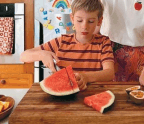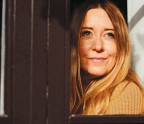we’ve got this.

BEING A DISABLED parent is a rebellious act. Disabled people should have the same right to parent as anyone else, but often when we decide to start a family we are met with judgement and discrimination. We are questioned rather than supported. We have to push up against the medical system, which is particularly problematic for disabled people. And we have to confront how ableist society’s model of parenting is, even in the twenty-first century. Yet, despite all of this, we still choose to parent. And we are damn good at it too! I became a parent six years ago. I’d always had an innate drive to have a family. As a child, I wrote in my diary that one day I would have children. My parents always hoped I’d have children. When I told them about my desire to be a mother, not once did they discourage the idea; they were excited and supportive of me starting my own family one day. I have a physical disability, a neurological condition called Charcot-Marie-Tooth. It affects the way I walk. I fall over regularly, have muscle and sensation loss throughout my body, lack of circulation that creates freezing cold legs on hot summer days, and I am consistently fatigued and in pain.
When I first seriously considered having children, I spoke to my neurologist. I had the hugest smile on my face: at the time I was in love and elated just thinking about the possibility of children. I’ll never forget his stern and unforgiving look in response; he couldn’t hide his disapproval. Silently he wrote notes on his computer as I waited. After what felt like hours, he lifted his head, adjusted his glasses and began to flood me with questions. “Have you considered your options? As someone with Charcot-Marie-Tooth, you have a 50 per cent chance of passing on your condition. Have you looked into genetic counselling? We could do a panel blood test again? Do you think you will be able to manage?”
I felt like I was. It affected me deeply. I can still feel the pain in my chest from that day; it flares again in moments of self-doubt. In June 2014, we found out I was pregnant. A rush of adrenalin filled my body and I had a rollercoaster of emotions: fear, uncertainty and excitement. The neurologist’s questions still haunted me: how was I going to do this? I grappled with other questions too. Would the pregnancy be too hard on my body? Would people judge me? Could I manage? What if I fell over while holding my baby? At times my head was a whirlwind of anxiety. I spent hours searching bookshops for a volume about parenting with disability. I wanted to feel represented, read a story like mine, know it was possible. I needed reassurance, to find a friend on the page saying, “Yes, you can do this.” But there was nothing out there. In all the stacks of parenting books, there were no mums like me. I felt incredibly alone. Where were the disabled parents? Why couldn’t I think of any movie or TV show that included a parent with a disability? More than 15 per cent of Australian households have a parent with disability, yet we are nowhere. I knew representation mattered-so it became my mission to share the stories of disabled parents, to help other disabled people know they’re not alone, and to show it’s possible. I searched for other disabled people worldwide who were parents, and little by little I felt less isolated. It became an obsession, and I created a pool of people who I could reach out to. It began to feel like a community of sorts, a way for us all to feel connected. The common thread was that we all felt underrepresented and alone in our decision to parent. This led me to create the audio serieswith the Australian Broadcasting Corporation (ABC). For the series, I travelled around Australia sharing the perspectives of disabled parents. Time and time again I witnessed that families with disabled parents are just like any other family. Of course they grapple with physical and attitudinal barriers in society, but inside the home all the families I met were thriving.
You’re reading a preview, subscribe to read more.
Start your free 30 days





